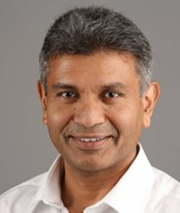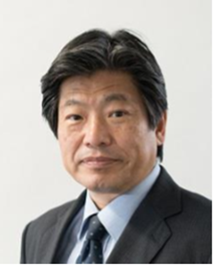Industry Keynote Speech I
Foundations of Foundation Models
Dr. Shuicheng Yan
Managing Director of Kunlun 2050 Research and Co-CEO of Skywork AI, Singapore
ABSTRACT Foundation models play a crucial role in the AI community and are considered essential for the success of AGI. In this talk, I will discuss three types of foundations for foundation models. 1) Parameter Optimizer: I will introduce a new optimizer called Adan from a theoretical perspective and demonstrate its effectiveness in improving the convergence rate of various foundation models by 1.5-2x. 2) Network Architecture: I will showcase how insights from neuroscience have influenced and will continue to drive the development of new deep learning network architectures. 3) Representative/Barrier Data: I will showcase the exemplar prototypes of Skywork AI to demonstrate the importance of representative data.
BIOSKETCH Dr Yan Shuicheng is currently Managing Director of Kunlun 2050 Research and Co-CEO of Skywork AI, and former Group Chief Scientist of Sea. He is Fellow of Singapore’s Academy of Engineering, AAAI, ACM, IEEE, and IAPR. His research areas include computer vision, machine learning, and multimedia analysis. Till now, he has published over 800 papers at top international journals and conferences, with an H-index of 140+. He has also been named among the annual World’s Highly Cited Researchers eight times. His team received ten-time winners or honorable-mention prizes at two core competitions, Pascal VOC and ImageNet (ILSVRC), deemed the “World Cup” in the computer vision community. Besides, his team won more than ten best papers and best student paper awards, particularly a grand slam at the ACM Multimedia, the top-tiered conference in multimedia, including the Best Paper Awards three times, Best Student Paper Awards twice, and Best Demo Award once.

Industry Keynote Speech II
Next-Generation Media: Content-Aware Processing and Personalization
Dr. Shriram Revankar
Senior Vice President of Dolby Labs, USA
ABSTRACT Over the course of history, media has undergone a series of transformative changes, while significantly influencing society, culture, and politics. From many revolutions to the world wars, media has been instrumental in shaping our perceptions and interactions with the world. Today, the convergence of high-speed connectivity, big-data, cloud computing, and generative AI has provided us with the ingredients needed to transform the end-to-end media workflow from creation, distribution, to rendering and consumption.
This talk aims to introduce the defining characteristics of next-generation media. Through demos and examples, I will make a compelling case for a central role for content-awareness in shaping the emerging media technologies. From the inception of media content, through its formats, encoding, delivery, and rendering, content-aware algorithms are set to revolutionize every facet of the media ecosystem.
Historically, optimization for human perceptions and broadcast architectures have been central to shaping of media technology. However, content awareness will not only integrate current media optimizations but also account for quantum leaps in network, big-data, and cloud infrastructures. Enabling immersive and engaging consumption through deep personalization will be the key guiding principle of this imminent transformation of the media.
BIOSKETCH As Senior Vice President of the Advanced Technology Group, Dr. Shriram Revankar oversees teams creating and delivering innovations that transform the sight and sound of immersive entertainment experiences, including the office of the Chief Technology Officer, image and sound research and development (R&D), prototyping, and technical operations. Shriram previously served as Vice President and Fellow at Adobe where he focused on delivering high impact technologies to Adobe’s Digital Experience and Document Cloud Businesses. Through his global lab leadership across the US and India, Shriram expanded on the world-class research competencies in AI, data science, social network analysis, data mining, big data analytics, natural language processing, knowledge management, machine learning and related areas at Adobe Research. Prior to joining Adobe, Shriram was a Xerox Fellow and the head of Smart Systems Lab and also the Chief Architect of the Production Solutions business at Xerox Corporation. He has a master’s and Ph.D. in computer science from SUNY Buffalo. His research interests include business intelligence and automation, smart and adaptive systems, AI and data science, computer vision and image processing, and analysis of social networks.

Industry Keynote Speech III
Safer and more productive cities with multi-media processing
Dr. Keiji Yamada
Executive Professional of NEC Corporation, Japan
ABSTRACT Urbanization is progressing around the world. The urban population ratio is already 50% today and is expected to reach around 70% by 2050. However, each city has its own unique problems that cannot be solved by specific technologies alone. For example, London and Tokyo, for example, face aging urban infrastructure problems behind their redevelopment. Rapidly developing cities such as Bangalore are experiencing traffic congestion and logistical stagnation due to inadequate infrastructure. All cities also have problems such as chronic hospital congestion due to diverse causes. Multimedia processing, including image processing, can contribute to solving these various urban problems. In this presentation, we will discuss applications and how they can be solved through a combination of technologies.
BIOSKETCH Keiji YAMADA, Ph.D. is an Executive Professional of NEC R&D division after serving as Vice President of NEC Corporation, Senior Vice President (R&D) of NEC Asia Pacific, and Senior Vice President (R&D) of NEC India. His research covers pattern recognition, machine learning, knowledge acquisition and processing, signal processing, and intelligent system design as their applications. He has a long experience in smart city system development in ASEAN countries including Singapore, India, Japan, the UK, the US, and so on. He carries out R&D on digital transformation in several industrial domains like manufacturing, health and medical care, logistics, mobility, and city infrastructure management. He was an adjunct professor of Nara Advanced Institute of Science and Technology and contributed to several academic societies as a governing board member of IAPR, a board member of the IEICE, Japan, etc.

